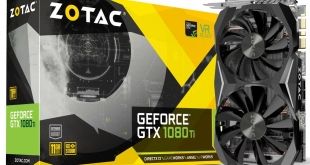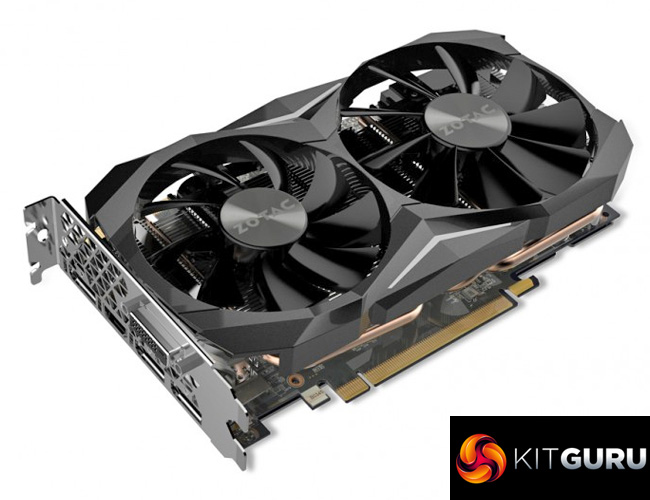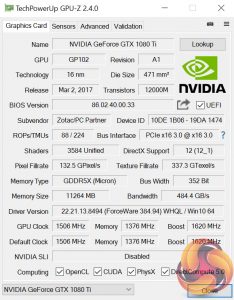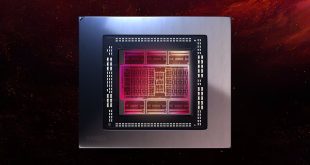
Since the launch of Nvidia's GTX 1080 Ti back in February, we have seen plenty of aftermarket cards from the likes of ASUS, MSI and Gigabyte to name just three. Today we analyse the Zotac GTX 1080 Ti Mini, most notable for its diminutive size. In fact, the Mini is actually the smallest GTX 1080 Ti on the market right now – so how does its size affect its performance?
If you have been reading our graphics cards reviews for the last few months, you will have noticed a certain trend among many of the aftermarket GTX 1080 Ti cards – they are all big. I don't just mean big in terms of length – though many are approaching 30cm long – but also in terms of height. To demonstrate this, just look at the ASUS ROG Strix, MSI Lighting and Gigabyte Aorus models – all three are two-and-a-half slot cards, something which has definitely become the standard for third party GTX 1080 Ti cooling solutions.
With that in mind, it becomes quite apparent what the Zotac GTX 1080 Ti Mini is up against. Not only is the Mini ‘just' a 2-slot card, it is also incredibly short at 211mm, and this obviously limits the amount of space for its heatsink and fans. Cooling performance will thus be interesting to assess, particularly when compared to Nvidia's reference GTX 1080 Ti Founders Edition.
That being said, Zotac has still added +38MHz to the boost clock so, in theory at least, performance should be marginally better than a standard GTX 1080 Ti FE. For full clock speed comparison, check out this table below:
| GPU | Nvidia GTX 1080 Ti Founders Edition | Zotac GTX 1080 Ti Mini |
| Base Clock |
1480 MHz | 1506 MHz |
| GPU Boost Clock | 1582 MHz | 1620 MHz |
| Memory Clock Effective |
11008MHz | 11010MHz |
| Memory Bandwidth | 484 GB/s | 484 GB/s |
| Price (£) | £689 | £699 |
 KitGuru KitGuru.net – Tech News | Hardware News | Hardware Reviews | IOS | Mobile | Gaming | Graphics Cards
KitGuru KitGuru.net – Tech News | Hardware News | Hardware Reviews | IOS | Mobile | Gaming | Graphics Cards





Even though it runs hot, this could be a great card for a SFF build that is being used as a HTPC multi purpose system in your living room. It could bring 4k gaming to your 4k living room TV! I wonder if there is a small AIO cooler that would fit and could help tame those temps.
The mini’s low idle temperature relative to the cards it was tested against suggest the possibility that a custom fan profile might help with its acoustics. As might a well ventilated case. I have a GTX 1070 FE and can attest that it, like many others, got some benefit from a custom voltage profile using Afterburner software. Lower voltage can help the card from hitting its power and temp limits as early, and might help with idle temps and fan speed and noise as well. This was a very informative review, thanks. It’s nice too see more options opening up for gamers.
I’m gonna buy one!